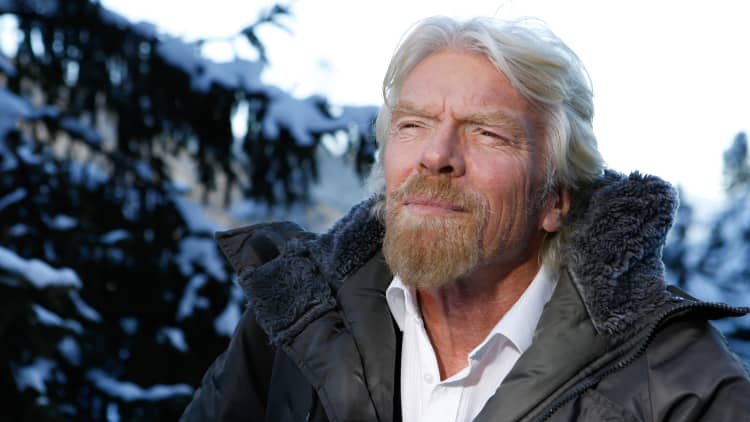When Richard Branson sold Virgin Records for a billion dollars in 1992, he wept. And not tears of joy.
After telling his staff that he had sold the company, Branson went back home to his house in London. "I, literally, I did have tears streaming down my face," says Branson in an interview with Guy Raz on the podcast "How I Built This."
"Then I ran past a sign that said, 'Branson sells for a billion.' I thought, 'I hope no photographer is going to catch me running past this sign with tears streaming down my face.' It looked very, very strange."
Branson opened the first Virgin Records store in 1971 and the accompanying recording studio in 1972.
But Branson has never been a man to run only one business at a time. He was simultaneously taking on British Airways with his upstart airline, Virgin Atlantic, and that's where he ran into trouble.
British Airways employees resorted to underhanded techniques to poach Virgin Atlantic customers. Some called Virgin customers, pretending the travelers' flights were canceled and offered to rebook them on British Airways, recounts Branson.
BA also targeted Branson's other endeavors in an attempt to find something they could use to discredit the overall brand. "They had people going to our clubs and going through the rubbish bins outside our clubs and looking for needles so they could leak stories to the scurrilous press about drugs in the clubs and so on," says Branson.
I hate selling things because basically a company is a group of people.Richard Bransonfounder and chairman of Virgin Group
Branson took British Airways to court for its scheming and won. But litigation is expensive, and it's distracting, too.
"We realised then that we needed the firepower to deal with BA," says Branson. "And that in order to keep all the jobs protected at Virgin Records and the airline, I needed to sell something."
Selling a company that he had built from the ground up was painful for the entrepreneur. "I hate selling things because basically a company is a group of people," says Branson. "It was a very mixed feelings day."
Branson said the decision was one of necessity, though. He had to think of his employees.
"It is a very hard decision. I mean, it's a very necessary decision in order to protect everything else you have. You know, we've now got 80,000 people who work for Virgin and, you know, their livelihoods, their jobs, their children, everything depends on that.
"And so you sometimes have to make tough decisions along the way."



